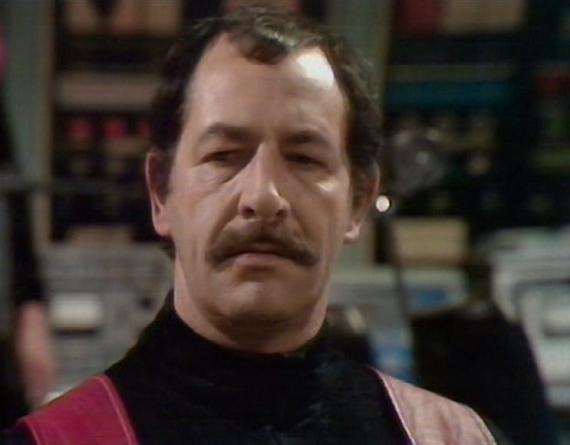David Main continues to seethe over the fact that Patrick Bell (Bernard Kay) is now responsible for the upkeep and moral guidance of his children. He remains intensely keen to win back custody …
We’ve seen Main angry before, but at the start of this episode he reaches levels of hysteria which are quite new. The reasons why are obvious – but it takes Henry Castleton some time before he can talk Main down and remind him that emotion won’t help to win the day. But the law very well might.
What’s really interesting about this episode is what we don’t see. With Kate O’Mara no longer a member of the cast, Julia’s increasing desperation at the prospect of losing her children has to be discussed through third parties. It’s surprising that O’Mara didn’t return for these first few episodes, as the tug of war custody battle would have given her a hatful of dramatic scenes (something sorely lacking for her character during the first series).
After Main wins custody, his uneasy fumbling relationship with his children (who, due to the pressures of his work, are like strangers to him) is reported second hand rather than shown. It seems strange to skip such an obviously dramatic scene, but this plotline hasn’t been about Main and his children (who remain shadowy indistinct figures, only briefly glimpsed on film). It’s much more concerned about the clash between Main and Bell.
Bell crumbles in the witness box once some of his darker secrets (a fondness for using the cane) have been unearthed. Sidney Bulmer proved his worth by digging up the dirt, although if the positions had been reversed and Bell had been Main’s client, no doubt the tone would have been somewhat different.
Two scenes late on in the episode are both standouts. The first – Main talks to his ex-wife on the phone – required a lot from John Stride. His monologue is convincing enough to suggest he was actually speaking to someone. The way the camera slowly closes in on his face helps to ratchet up the tension.
Main had earlier confided to Bell that Julia, deprived of the children, would be in a mental institution within six months. Given this harsh statement it’s fairly easy to guess how the story will be resolved – Main retains custody but allows the children to go back to Julia and Bell, provided they accept Main’s choice of schools and Bell moves to a slightly better neighbourhood. Once again, Stride and Kay both command the screen. Bell’s initial reluctance to betray his principles is bitterly mocked by Main (who processes to be sickened by the inflexibility of his rival).
The episode’s secondary plot – an antiques dealer called Mrs. Clifford (Diana Coupland) is seeking financial restitution from two young thugs who blinded her – ticks along nicely as well.
It Could Happen to You might be a little predictable in places, but the drama still plays out effectively – especially in the last few minutes when Main fights a two-pronged battle. Not only seeing off Bell but also tackling the smooth defender – Mark Freedler (John Barcroft) – who dared to deprive Mrs Clifford of her money.
















